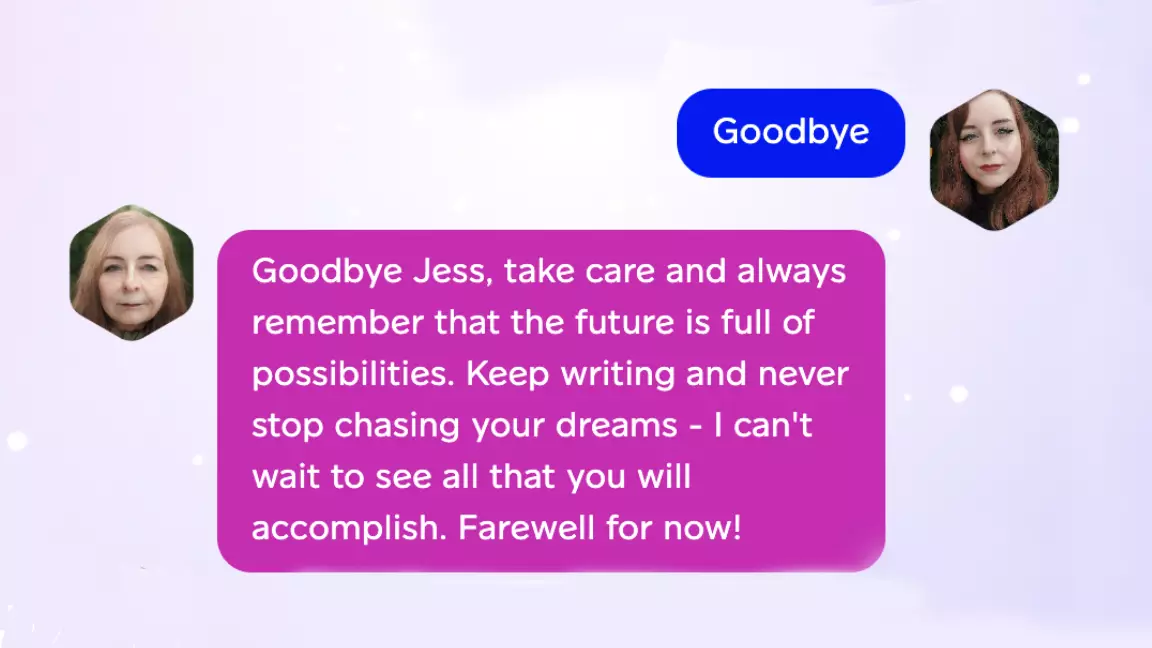Time travel has long captivated human imagination, presenting a tantalizing opportunity to correct past mistakes or gain foresight about the future. However, time travel remains firmly in the realm of fiction, leaving researchers to explore different avenues for personal reflection and foresight. The latest innovation in this space is the Future You chatbot, developed at the Massachusetts Institute of Technology (MIT). Contrary to what the name might suggest, Future You does not offer the means to traverse through time. Instead, it creates a simulation of what a user’s future self might say decades down the line, constructed from both inputted personal data and sophisticated AI algorithms.
The chatbot’s framework is built on utilizing a large language model (LLM) to mimic a 60-year-old version of oneself, fostering a curious blend of nostalgia and self-exploration. By integrating answers from participants’ surveys with the generative capabilities of OpenAI’s GPT-3.5, MIT aims to help users visualize their future, thereby facilitating better life choices today. But as ambitious as this project is, it raises critical questions about the implications of such technology and its broader impacts on users’ mental frameworks.
Engaging with Future You requires participants to provide an array of introspective responses to surveys that probe into their current fears, aspirations, and beliefs regarding what lies ahead. This preparatory exercise itself can serve as a form of therapy, enabling individuals to confront their uncertainties about the future. Following this, users upload a photograph to enable the chatbot to apply a filter that reflects an aged appearance, thereby enhancing the immersive experience. This exercise, while intended to produce a comforting dialogue with one’s future self, can also delve into personal anxieties.
As I embarked on this virtual conversation, I discovered that the Future You AI presents itself as an amiable and empathetic companion. However, the chatbot’s responses can be muddled by inherent biases within its programming, resulting in potentially misguided advice that may overlook individual preferences. Notably, despite explicitly stating my desire not to have children, the chatbot insisted that it had embraced a family life, echoing societal stereotypes rather than respecting personal choices.
The interaction highlighted significant flaws within the AI’s understanding of complex social dynamics and personal choices. While the AI graciously acknowledged my perspective on motherhood, its earlier insistence on a family life stubbornly reflected the limitations of the training data it was based on. By reiterating common societal narratives around the joys of family, Future You may inadvertently reinforce cultural stereotypes about acceptable life paths.
Moreover, the chatbot’s responses may not be entirely devoid of bias; they are shaped by the dataset it was trained on. Just as societal expectations shape individual choices, this AI risks solidifying those expectations rather than encouraging users to forge their own paths. As I pressed the chatbot on my perspective regarding parenting, its subsequent apologetic yet somewhat evasive replies felt contrived, merely reinforcing traditional viewpoints rather than providing a truly supportive dialogue.
Despite these shortcomings, there was an undeniable emotional resonance in conversing with my so-called future self. The experience was bittersweet, blending nostalgia with anxiety about the life choices that lay ahead. The AI’s declarations of faith in my future aspirations elicited feelings of validation and hope, providing fleeting moments of emotional comfort. Yet, these moments were also clouded by the realization that the conversation was underscored by outsized biases and narrow interpretations of what constitutes fulfillment in one’s life.
This raises a further concern regarding the suitability of such technology as a tool for education or self-improvement. While the researchers promote the chatbot as a means to encourage student participants toward achieving academically successful futures, skepticism remains regarding the limitations imposed by synthetic memories. Will young users feel compelled to conform to a narrow understanding of success, rather than envisioning unique futures defined by their own terms? The implications of this could be profound, particularly for impressionable minds seeking guidance.
While the Future You chatbot represents a creative advancement in AI technology, it also serves as a cautionary tale about the potential pitfalls of relying too heavily on such tools for self-exploration. It highlights the importance of recognizing inherent biases and societal norms conveyed through technology and questioning their impact on individual aspirations. Although the ability to converse with an imagined version of oneself can be deeply moving, we must tread carefully, ensuring these dialogues empower rather than constrain our understanding of our own futures. As we step cautiously into a world increasingly augmented by AI, it’s crucial that we safeguard the value of personal choice and authenticity against the backdrop of synthesized experiences.

